Neil Armstrong was an American astronaut who is highly famous for space phenomena. He was born on August 5, 1930. Since he was young, he loved anything related to flying, which set him up for big wins later on. Armstrong didn’t stop there—after he got his engineering degree, he also served in the military, which is pretty spectacular.
Then, he took his shot at being a test pilot, which is really brave and all. It is apparent to you and me that a person levelling up in life wasn’t by accident. A discerning reader, such as yourself, will indeed comprehend how all his early obsessions and challenging work made him a legend in exploring space.
This piece digs into the stories and lasting marks left by an important space Armstrong. He nailed a significant win in 1969 by being the first to walk on the moon with the mind-blowing Apollo 11 mission; there is a profound and deep-seated certainty that he’s of significant consequence in history. One clearly can envision how important that moment was.
Early Life and Childhood
Neil Armstrong was born on August 5, 1930, in Wapakoneta, Ohio. Armstrong was highly interested in flying from a young age, which we can easily see set the stage for his future. Although it may seem incongruous, he got his pilot’s license even before he could legally drive a car, proving how much he was into aviation. It’s abundantly evident that his experiences growing up played a significant role in leading him to become a legendary astronaut.
At Purdue University, Armstrong was extremely interested in learning more about flying and decided to major in aeronautical engineering; this choice helped him understand how flight works even better. Before this, he was a naval aviator in the Korean War, flying really advanced planes; those experiences, no joke, were key in getting him ready for some big future challenges.
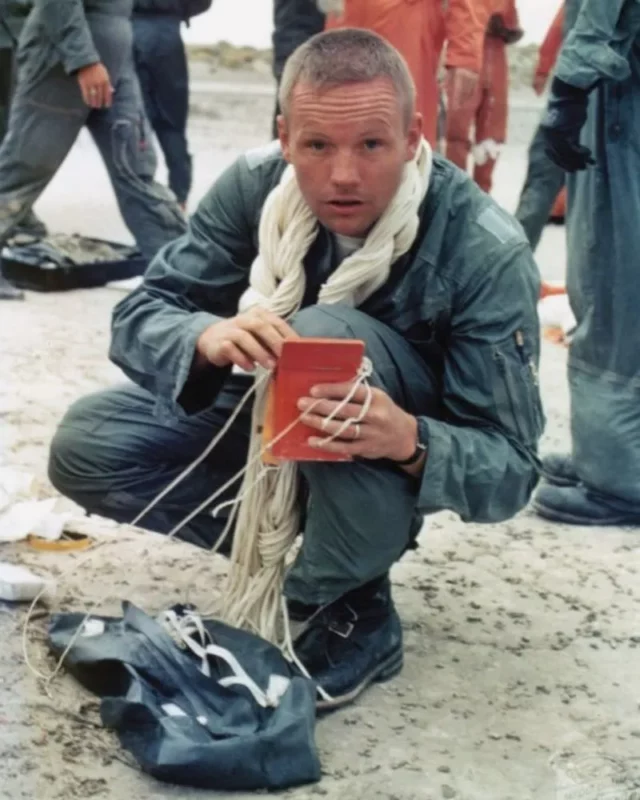
image source: instagram
Education and Military Service
After his formative experiences in aviation during his early life and childhood, Neil Armstrong continued his pursuit of knowledge and skills through higher education and military service.
Armstrong enrolled at Purdue University in 1947, where he studied aeronautical engineering. During his time at Purdue, Armstrong also became a Phi Delta Theta fraternity member member. However, his education was interrupted by his service in the Korean War.
Armstrong got called up to join the United States Navy in 1949. While part of the Navy, he did 78 combat missions in the war and was honoured with three Air Medals because he was brave. After that part of his life, he finished his studies at Purdue and didn’t stop there — he continued his education to get a master’s degree in aerospace engineering from the University of Southern California. We can take as a definite certainty that his time in the military and his serious focus on education were the steps that prepared him for his significant achievements in flying and space exploration. You can feel gratification knowing that his past paved the way for his success in making substantial strides in aviation and exploring space.
Neil Armstrong’s Body Measurements And Personal Details:-
Full name at birth: Neil Alden Armstrong
First name: Neil
Last name: Armstrong
Date of birth:5 August 1930
Gender: Male
Birthplace: Wapakoneta, Ohio, United States
Date of death:25 August 2012
Location of death: CincinnatiOhioUnited States
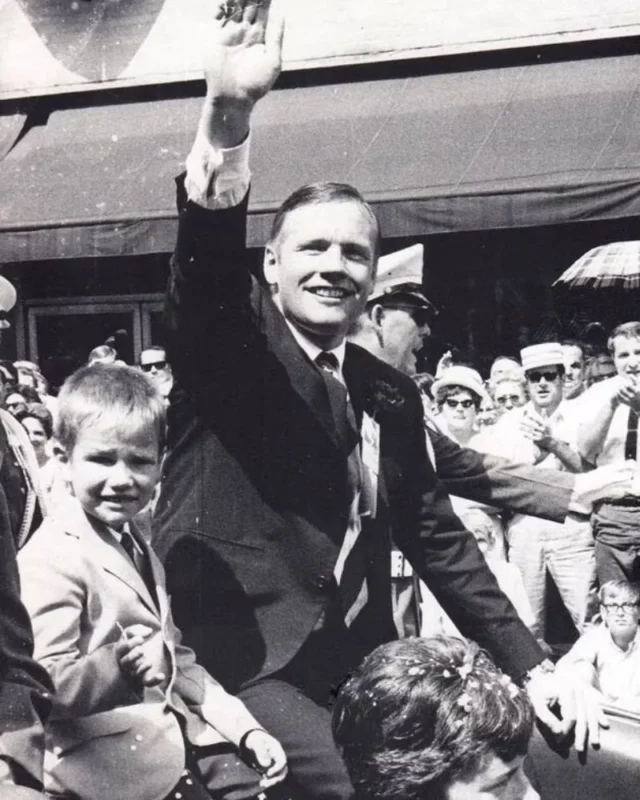
image source: instagram
Cause of death: Complications resulting from cardiovascular procedures
Occupation: Astronaut
Zodiac sign: Leo
Nationality: American
Occupation category: Astronaut
Height:5′ 11″ (180 cm)
Eye colour: Blue
Hair colour: Salt and pepper
Sexual orientation: Straight
Religion: Methodist
Ethnicity: White
Net worth:$8000000 USD
Build: Average
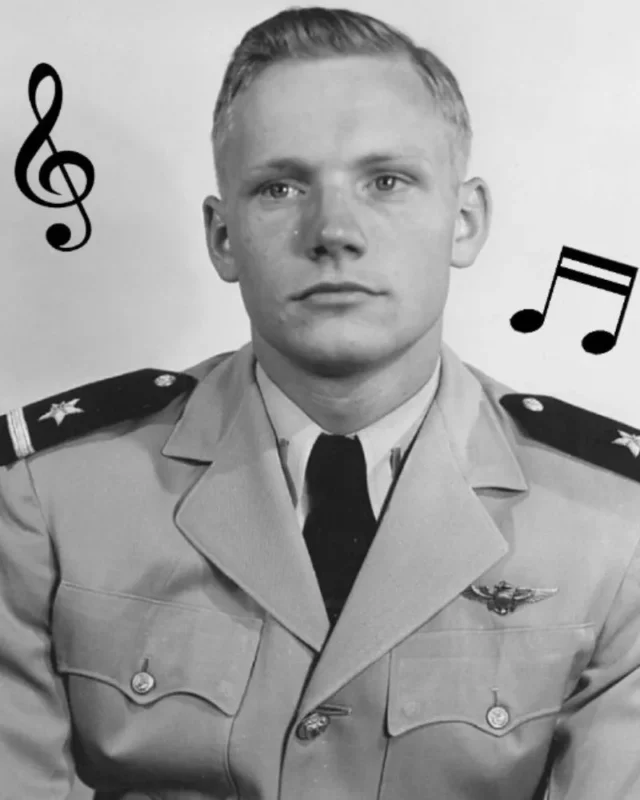
image source: instagram
Check out the body measurements of other actresses
| omari hardwick measurements |
| patsy kensit measurements |
| peter wolf measurements |
| rhenzy feliz measurements |
| robert mitchum measurements |
Becoming a Test Pilot
After finishing school and spending time in the military, Armstrong got a job as a research pilot with the National Advisory Committee for Aeronautics (NACA) in 1955. One can envision how his role as a test pilot showed everyone what he was made of and set him up for significant wins in flying planes and exploring space. We may thus possibly come up with a direct conclusion that these early experiences were stepping stones to his famous moments later on.
The Apollo Program and Moon Landing
Armstrong was one of the special people picked to be in NASA’s astronaut group because he had been a test pilot before; they had an essential goal in the Apollo program to get somebody walking on the moon before the 1970s started; the concrete and precise culmination of this was Armstrong making history by actually setting foot on the moon. A discerning reader like yourself will comprehend how his earlier days as a test pilot were critical in leading to this significant moment.
On July 20, 1969, Armstrong and fellow astronaut Buzz Aldrin made history by becoming the first humans to set foot on the lunar surface during the Apollo 11 mission.
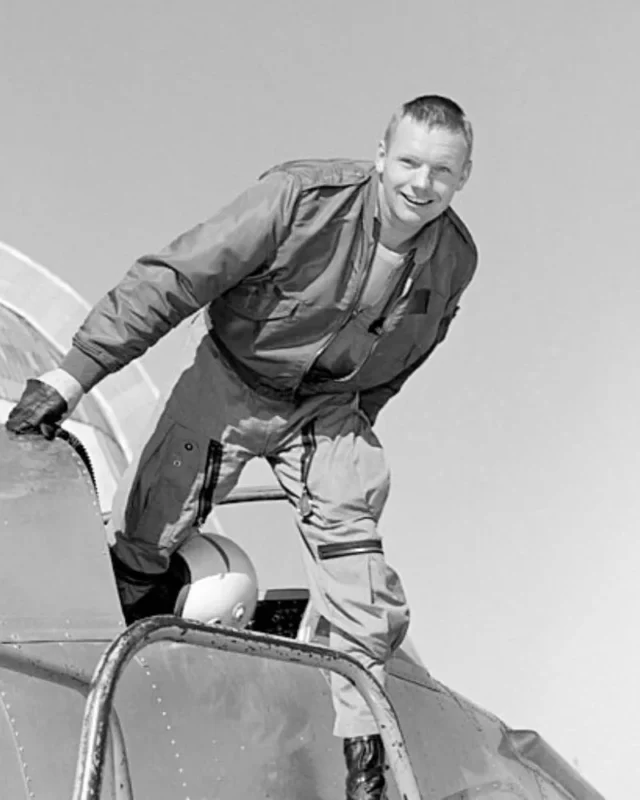
image source: instagram
Life After NASA
Following his historic role in the Apollo program and the momentous achievement of landing on the moon, Neil Armstrong embarked on a new chapter in his life.
After leaving NASA in 1971, Armstrong took up a teaching position at the University of Cincinnati, where he taught aerospace engineering. He also served on various corporate boards and was a spokesman for several companies, including Chrysler and United Airlines.
Armstrong kept lingering in the aerospace industry, even digging deep into what went wrong with Apollo 13. You and I can see that he didn’t change much after NASA, choosing to lay low and dodge being the centre of attention. He threw himself into science content –and making sure the next wave of curious minds got the push they needed. And in the final analysis, one finds that Armstrong’s quiet life was still pretty impactful.
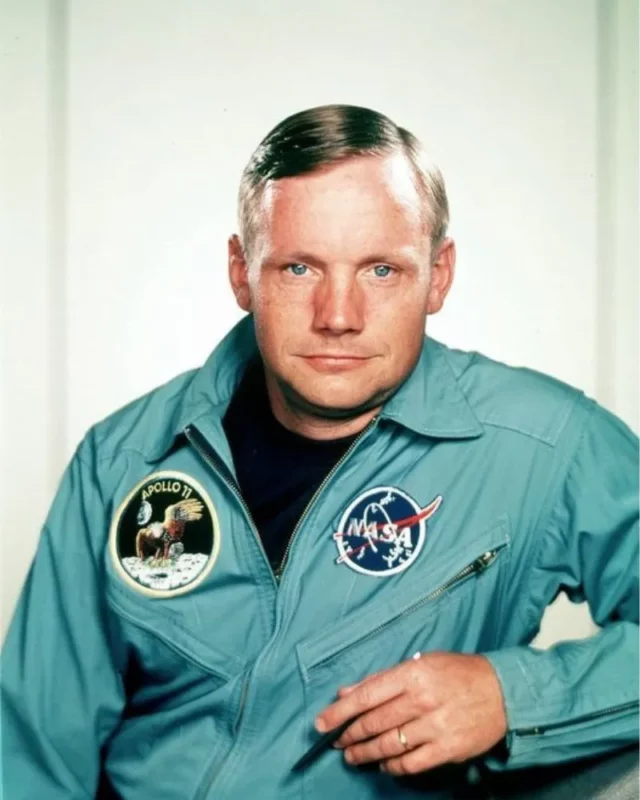
image source: instagram
Conclusion
To wrap this up, we can take it as a definite certainty that Neil Armstrong did some essential things in space-related activities. From flying test missions to being the first individual to walk on the moon, one can see—and there are no ifs, ands, or buts about it—that Armstrong’s guts and never-give-up attitude have excited people for years.
Even though he kept to himself after working at NASA, his work in space exploration continues to affect discoveries and remind us that there’s so much more beyond Earth; the hermetic result is surprisingly significant. As you might also hold faith, we believe his input hasn’t stopped pushing the boundaries of what we can discover.
